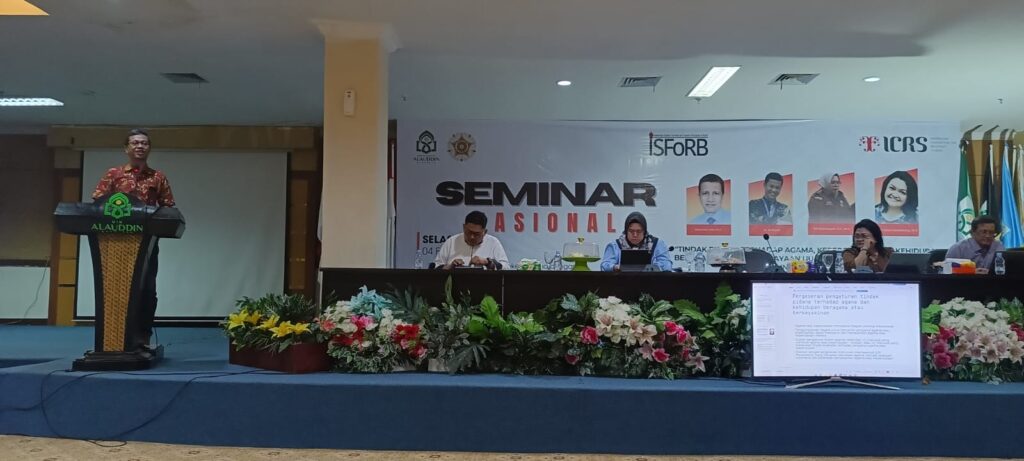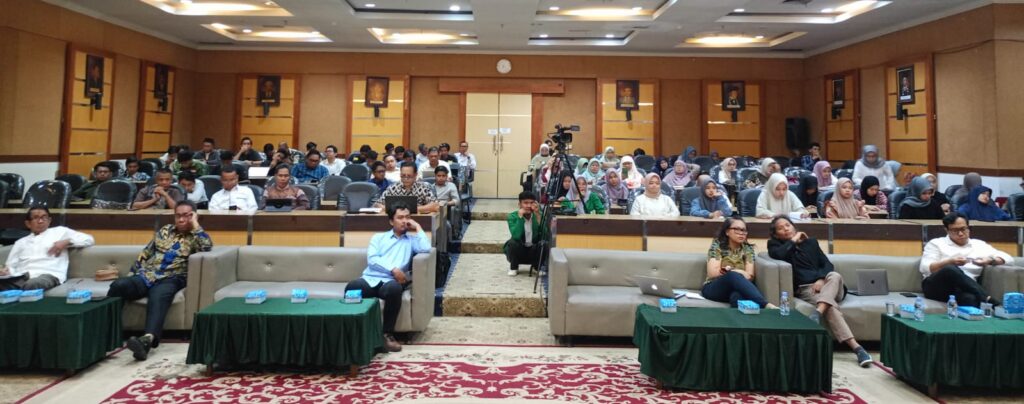
Tuesday, 4th February 2025
The Indonesian Scholars Network on Freedom of Religion or Belief (ISFoRB), together with the Indonesian Consortium for Religious Studies (ICRS) and the Faculty of Law of Alauddin University, have initiated a program for the dissemination and promotion of the interpretation of Articles 300-305 of the Indonesian Criminal Code. The two day event held at Alauddin University is part of the dissemination program involving three campuses: Alauddin University of South Sulawesi, Andalas University of West Sumatra, and Syiah Kuala University of Aceh. ISFoRB and ICRS received generous funding from the United Kingdom Embassy for this program.

Dr. Al Khanif, as one of the ISFoRB researchers and authors of the interpretation of Articles 300-305, presented his paper on the shifting paradigm of blasphemy law regulated by the old Criminal Code. According to his interpretation, the new Code does not establish religion as the main subject of blasphemy but instead addresses all actions which fall within the scope of intolerance, discrimination, violence, hate speech, and incitement of persecution toward persons or religious communities.
Together with Dr. Lydia Tandirerung, Dr. Wahyuddin Halim, and Siti Nurhidayah, Dr. Al Khanif expects that the new Code will not criminalize minority rights and the promotion of human rights in Indonesia. Some scholars remain skeptical regarding the new Code but others, including those associated with ISFoRB and ICRCS, are optimistic that the new Code can combat intolerance, discrimination, and persecution toward minority and vulnerable groups. The new Criminal Code regulates the basic principles of tolerance which have previously been regulated by international instruments such as the Rabat Plan of Action and UN Resolution 16/18, which specifically combat all types of religious intolerance.
